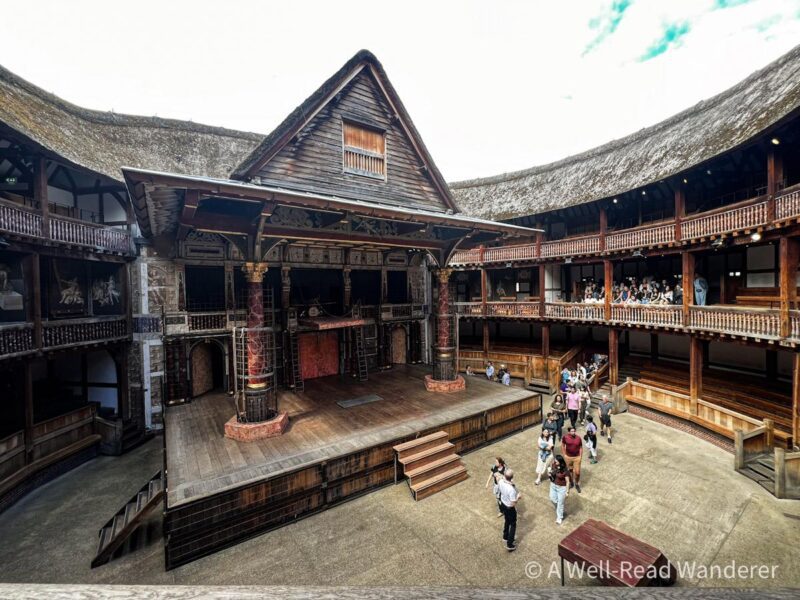For educators looking to enrich their teaching experience with a splash of Elizabethan drama, the Globe Theatre extends a special token of appreciation: a teacher discount on performances. This wonderful initiative recognizes the hard work and dedication of teachers across the nation and encourages them to immerse themselves in the world of Shakespeare and his contemporaries, bringing a piece of that magic back to the classroom.
Full disclosure: If you visit a link on this page and make a purchase, we may receive a small commission at no extra cost to you.
Nestled on the banks of the River Thames, the Globe Theatre stands as a lovingly reimagined replica of the iconic 16th-century playhouse for which William Shakespeare penned many of his plays. A visit is like stepping back in time; the open-air theater offers a lineup of performances from heart-wrenching tragedies to spirited comedies, as well as engaging educational tours. More than just a venue, the Globe Theatre is a vibrant cultural institution, keeping the rich traditions of Shakespearean performance alive through thought-provoking productions and active learning programs designed to inspire audiences of all ages.
Teachers eager to take advantage of this cultural feast and enjoy a discount on their visit simply need to reach out to the Globe Theatre’s box office or visit their official website. Proof of teaching status is usually required, so have your faculty ID handy. Once verified, you can book tickets for a show or an enlightening guided tour, all at a discounted rate. It’s a splendid opportunity to gather insights and inspiration that will dazzle your students and perhaps, kindle in them a lifelong love for the Bard’s timeless work.
Q&A
### Q&A: Exploring the Magic of the Globe Theatre
**Q: What was the Globe Theatre famously known for?**
A: The Globe Theatre was famously known for being the theatrical home where many of William Shakespeare’s plays were first performed and were brought to life in the late 16th and early 17th centuries.
**Q: Can you tell us where the Globe Theatre was originally located?**
A: Originally, the Globe Theatre stood on the south bank of the River Thames in London, England. Its exact location was in the borough of Southwark, not far from the bustling trade of the city’s central streets.
**Q: How did the Globe get its distinctive name?**
A: The name ‘Globe’ was chosen to capture the theatre’s intention to present “stories from around the globe,” emphasizing its ambition to showcase plays that span different countries, societies, and experiences. The name also reflects the spherical shape of the building, akin to the notion of a ‘global’ theatre.
**Q: What was the structure of the Globe Theatre like?**
A: The Globe was an open-air amphitheater with a three-story, circular or polygonal design. It featured a stage that thrust out into the middle of the audience, galleries for wealthier patrons, and a pit called the “yard” for standing viewers. Its wooden structure and thatched roof made it both grand and vulnerable to the elements (and, as history shows, to fire).
**Q: How did the original Globe Theatre meet its demise?**
A: The original Globe Theatre tragically met its end on June 29, 1613, when a theatrical cannon used in Shakespeare’s play “Henry VIII” set the thatched roof on fire, and the flames quickly consumed the wooden structure. The theatre was subsequently rebuilt in 1614, only to be closed down in 1642 and finally demolished in 1644.
**Q: Is it still possible to visit the Globe Theatre today?**
A: While the original Globe is no longer standing, a meticulous reconstruction called ”Shakespeare’s Globe” opened in 1997. This modern replica, located near the original site, serves as both a historical monument and a working theatre, continuing to celebrate Shakespeare’s legacy by putting on performances and educational programs.
**Q: Could you expand on how the audience experienced performances at the Globe?**
A: Watching a play at the Globe Theatre was a highly interactive and sensory experience. The audience would not only listen to the rich language of the plays but also respond vocally and physically. People from all walks of life, from the poorest groundlings to the wealthiest nobles, congregated together, making it a truly communal space.
**Q: What initiatives does the modern-day Globe Theatre undertake to honour Shakespeare’s work?**
A: The modern-day Globe Theatre is dedicated to the exploration and performance of Shakespeare’s work through faithful reconstructions of his plays in settings that closely mimic the original staging conditions. Additionally, it seeks to educate and inspire through workshops, lectures, and playwriting programs, all aimed at keeping the spirit of Shakespeare’s theatre alive.




